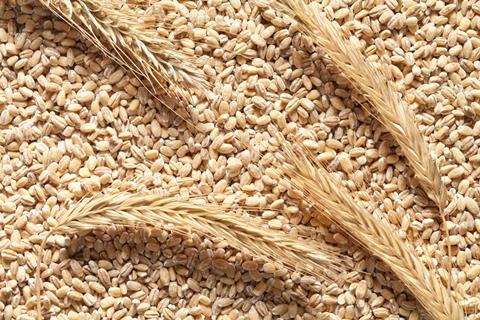
Bakers will be dependent on breadmaking wheat imports to meet demand this year as England heads for one of its three worst harvests on record, according to industry data.
Harvest estimates were published in a report by the Energy and Climate Intelligence Unit (ECIU), a non-profit organisation, following analysis of provisional data on English crop areas from Defra as well as yield forecasts from the Agriculture and Horticulture Development Board (AHDB).
Human-caused climate change was said to be behind a 20% heavier storm rainfall over the previous autumn and winter, which disrupted English farmers’ ability to grow key crops including wheat, winter and spring barley, oats, and oilseed rape.
As a result, harvests are expected to be reduced by more than 18%, or 2.2m tonnes, compared to 2023 levels. This would put it just behind 2020 and 2001 in the list of England’s worst harvests since records began in 1983.
The wheat harvest across England and Wales is now largely complete, according to the AHDB, however Scotland is much further behind.
Agriculture across the rest of the UK doesn’t appear to be faring any better either, with the ECIU predicting total harvests of the five key crops will be down by over 13% or 3m tonnes on the five-year average. While noting that earlier industry forecasts had been even more pessimistic, it said that should crop areas end up 5% less than estimates, then it would mark the worst harvest in Britain this century.
It added that this will leave the UK dependent on imports to meet demand for bread and other baked goods.
In a typical year, around 15% of the wheat used by UK flour millers is imported (representing around 750,000 tonnes), according to data publihsed on trade body UK Flour Millers’ website. The most common countries to import wheat from are Canada, France, Germany, and the US.
Read: How to navigate breadmaking wheat supply challenges in 2024
“It’s been a year to forget for many farmers, as the recent benign summer has failed to make up for six months of seemingly endless rain over the winter, the effects of which are now becoming apparent,” commented Tom Lancaster, land, food, and farming analyst at the ECIU
“More than most, farmers are on the front line of climate change, and this is what that looks like. Extreme weather is already feeding through to higher food bills and a greater reliance on imports,” he added. An ECIU report from November 2023 found the impact of climate change to have raised household food bills by an average of £361 in 2022 and 2023.
Lancaster highlighted that measures for capturing carbon can also make farms more resilient with more hedges and trees helping to prevent soil loss, and healthier soils recovering faster from floods and drought. Promotion of good soil health is one of the benefits of regenerative farming methods, something that consumers across the UK are increasingly demanding in bakery production, especially for artisanal products like sourdough.
Meanwhile, farmer and chief executive of the Nature Friendly Farming Network, Martin Lines, called on the government to continue its support of UK farmers in preparing for and coping with droughts and floods.
“Properly funded government land management schemes are a vital first step and have helped me to increase the resilience of my farming by improving my soil health, and boosting the amount of wildlife on my farm,” he revealed.
Recent reports, though, suggest that public funding for these schemes is under pressure, as Chancellor Rachel Reeves seeks to make savings ahead of the Budget at the end of October.



















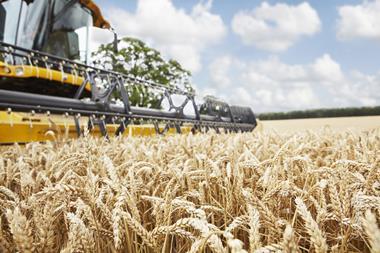

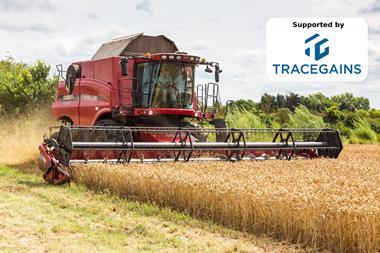

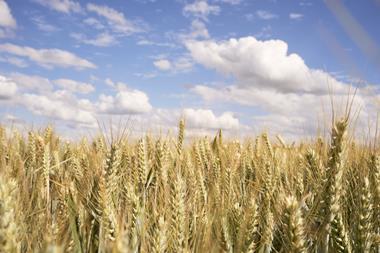
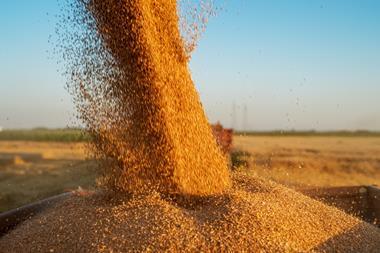



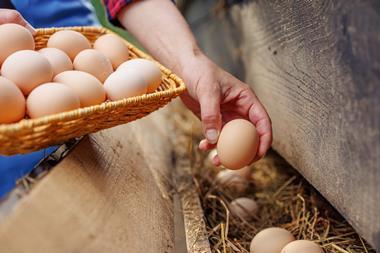



No comments yet